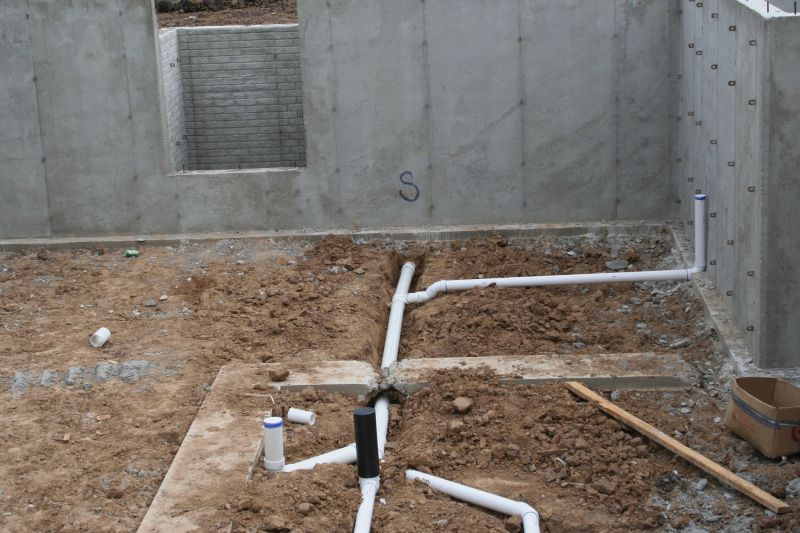Favorite Products For Basement Pourings To Achieve Professional Results
Select from popular supplies that help you create strong, long-lasting basement structures with confidence.
 Choosing the right products for basement pouring projects requires careful consideration of durability, compatibility, and ease of use. Basement pourings often involve creating new concrete slabs, repairing existing surfaces, or installing specialized features such as stairs or utility pads. Selecting quality materials ensures structural integrity and longevity, helping to avoid future issues such as cracking or uneven settling. From concrete mixes to reinforcement materials, a variety of products are available to support different aspects of basement pouring tasks.
Choosing the right products for basement pouring projects requires careful consideration of durability, compatibility, and ease of use. Basement pourings often involve creating new concrete slabs, repairing existing surfaces, or installing specialized features such as stairs or utility pads. Selecting quality materials ensures structural integrity and longevity, helping to avoid future issues such as cracking or uneven settling. From concrete mixes to reinforcement materials, a variety of products are available to support different aspects of basement pouring tasks.
Top Overall Option
High-Performance Concrete Mix
A versatile, high-strength concrete mix designed for various basement pouring applications, offering excellent workability and durability. It is suitable for slabs, footings, and repairs, providing a reliable foundation for your project. Its ease of mixing and application makes it a popular choice among both DIYers and professionals.
Types of Products For Basement Pourings
Concrete Mixes
Various concrete mixes formulated for different load requirements and finishes, including standard, high-strength, and rapid-setting options.
Reinforcement Materials
Steel rebar, wire mesh, and fiber reinforcements that add tensile strength to poured concrete slabs.
Formwork and Molds
Reusable or disposable forms used to shape and support concrete during curing, essential for stairs, walls, and custom features.
Waterproofing Products
Sealants, membranes, and coatings designed to prevent water ingress and protect basement structures.
Patching and Repair Compounds
Specialized compounds for fixing cracks, holes, or surface imperfections before pouring new concrete.
Admixtures
Additives that modify concrete properties such as setting time, workability, and durability.
Surface Finishing Tools
Trowels, floats, and polishing tools to achieve smooth and level surfaces post-pour.
Vapor Barriers
Plastic sheets or membranes placed beneath slabs to control moisture migration and improve durability.
Curing Compounds
Sprays or coatings that help retain moisture during curing, ensuring optimal strength development.
Expansion Joints
Materials used to accommodate movement and prevent cracking in large slabs.
Drainage Products
Drainage mats and channels to direct water away from poured slabs and prevent water accumulation.
Popular Choices
Quick-curing formulas suitable for urgent repairs or projects requiring fast turnaround.
Concrete containing fibers that enhance crack resistance and durability without additional reinforcement.
Convenient pre-measured mixes ideal for small to medium projects with minimal preparation.
Flexible membranes that provide an effective barrier against water infiltration in basement slabs.
Concrete enhanced with polymers for improved adhesion, flexibility, and durability.
Complete kits with sealants and tools for addressing minor cracks before pouring new slabs.
Tools essential for smoothing and finishing concrete surfaces after pouring.
Protective layers placed beneath slabs to control moisture and improve longevity.
Supports for rebar that ensure proper positioning within concrete slabs.
Insulating covers that help maintain optimal moisture and temperature during curing.
Permeable mats that facilitate water movement away from poured slabs, reducing water buildup.
Understanding the specific requirements of your project can guide your product choices. For instance, projects that involve large slabs may benefit from high-strength concrete mixes designed for load-bearing capacity. Smaller repairs or decorative finishes might require specialized overlays or patching compounds. Proper preparation, including moisture control and surface cleaning, is essential before pouring or applying any products. Using compatible and well-rated products can facilitate smoother application and better results.
Additionally, safety considerations should not be overlooked. Protective gear, proper ventilation, and adherence to manufacturer instructions contribute to a safer working environment. Investing in products with clear instructions and reliable formulations can help ensure your project proceeds efficiently and safely. Whether you are a DIY enthusiast or a professional contractor, selecting the right products for basement pouring projects can significantly influence the outcome and durability of your finished space.
Key Buying Considerations
- Project scope and size to determine the volume and type of product needed.
- Compatibility of materials with existing basement surfaces and structures.
- Desired curing time and whether rapid-setting products are appropriate.
- Strength requirements based on load-bearing needs and usage.
- Waterproofing features to prevent moisture issues in below-grade environments.
- Ease of mixing and application, especially for DIY projects.
- Reinforcement options suitable for the scale and type of slab or repair.
- Surface finish preferences, such as smoothness or texture.
- Durability and resistance to cracking, especially in areas prone to movement.
- Environmental conditions like humidity and temperature during application.
- Budget constraints while balancing quality and longevity.
- Availability of tools and accessories needed for application and finishing.
- Manufacturer instructions and product reviews for reliability.
- Compatibility of admixtures with other products used in the project.
- Long-term maintenance and potential future repairs.
This page contains affiliate links. We may earn a commission if you purchase through these links, at no additional cost to you.
